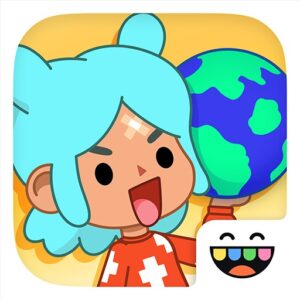Talking About the Palestinian Story Was Forbidden
Popular Now
 Auto X Drift Racing 3
Auto X Drift Racing 3
 Geometry Dash
Geometry Dash
 Garena Free Fire: Kalahari
Garena Free Fire: Kalahari
 Gacha Club
Gacha Club
 Call of Duty
Call of Duty
 PUBG Mobile
PUBG Mobile
 R.E.P.O
R.E.P.O
 BeamNG.drive
BeamNG.drive
 Text to Speech Voice
Text to Speech Voice
 Rust
Rust
Dual Lives in Nablus
Rasheed Abueideh, based in the West Bank city of Nablus, supports his family by running a nut-roasting business—yet under this ordinary appearance, he is also a celebrated independent game developer with a mission to tell difficult truths about his homeland.
A Haunting Beginning: Liyla and the Shadows of War
In 2014, during the Gaza war, Abueideh released Liyla and the Shadows of War, which centres on a father desperately trying to reach safety for himself and his daughter amid bombardments. Apple initially rejected the game from its App Store due to its political content, but later reversed that decision following public protest.:contentReference[oaicite:0]{index=0}
 Dreams on a Pillow: Remembering the Nakba
Dreams on a Pillow: Remembering the Nakba
Inspired by Palestinian folklore and real accounts, Abueideh’s next project is Dreams on a Pillow. It follows a mother during the 1948 Nakba—when more than half of the Palestinian population was displaced—seeking refuge in Lebanon. The game’s narrative centres on themes of loss and resilience, conveyed through lyrical storytelling.:contentReference[oaicite:1]{index=1}
Roadblocks to Funding
Despite critical success, Abueideh struggled to gain financial support from traditional channels due to the game’s politically sensitive subject. After enduring nearly 300 rejections, he turned to crowdfunding on LaunchGood. By early January 2025, the campaign reached its target—covering about half the project’s cost, enough to sustain development for a year.:contentReference[oaicite:2]{index=2}
Developing from the West Bank
Abueideh creates under complex constraints—working from Nablus and often in secrecy. His earlier efforts to confront the 2014 conflict through gaming involved personal sacrifice, emotional strain, and navigating content restrictions.:contentReference[oaicite:3]{index=3}
 Why This Story Matters
Why This Story Matters
With Dreams on a Pillow, Abueideh hopes to broaden understanding of Palestinian history and trauma. By placing players inside the lived experiences of displacement and grief, he seeks empathy—and action—from players around the globe.:contentReference[oaicite:4]{index=4}
Abueideh’s story highlights the stubborn resistance faced by creators who choose to narrate the Palestinian experience—yet also the power of alternative paths, like crowdfunding, to bring those stories to life.









